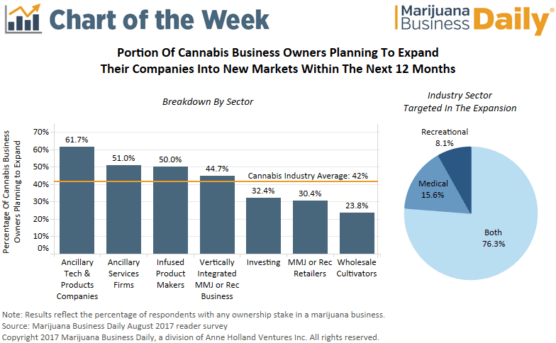(This story has been updated since the company filed a Form 8-K Wednesday morning with the Securities and Exchange Commission.)
By Omar Sacirbey
Turmoil and uncertainty are swirling around MassRoots, the once high-flying canna-centric social media and tech firm, after the company’s board fired founder and CEO Isaac Dietrich.
The news already has triggered fallout for MassRoots: The Denver company’s planned $12 million acquisition of tech company CannaRegs has been scrapped.
“With the tumultuous nature of what’s going on over there, we can’t stay in this agreement,” said Amanda Ostrowitz, CEO of CannaRegs, which provides services that help marijuana companies stay on top of ever-changing industry regulations. “I’m a business owner and I have to do what’s right for my business.”
After staying mum on Tuesday, the company confirmed the firing in a filing Wednesday morning with the Securities and Exchange Commission.
Dietrich will be paid nearly $32,000 in severance, minus relevant taxes and withholding. He may be required to reimburse the company for up to $25,000 in expenses.
Massroots also confirmed that it named named vice president Scott Kveton as its new CEO. Kveton previously was director of business development at Odava, a company that makes compliance and supply management software for marijuana businesses.
MassRoots acquired Odava in July as part of a broader acquisition strategy that sought to move MassRoots away from its social media roots and into other technology businesses.
In over-the-counter trading, MassRoots’ (MSRT) stock has taken a beating.
Before news of Dietrich’s firing surfaced, the company opened Monday morning at 44 cents a share. By Tuesday afternoon – after the development was reported – the stock closed at 29 cents, a drop of 34%.
Trading volume was heavy, with 7.5 million shares exchanging hands. That’s nearly 14 times more than the daily average, as shareholders either angry at Dietrich’s removal – or worried about the company’s future – dumped the stock.
Weekend coup
The company’s most recent troubles go back to the weekend, when the board of directors at MassRoots voted to remove Dietrich as CEO.
MassRoots, which was founded by Dietrich in 2013, has been suffering from mounting debt and declining revenues.
Dietrich reportedly knew the vote was coming and spent the weekend trying to persuade MassRoots’ shareholders to fire the board before it could oust him; but the board acted first, according to Forbes.
Dietrich did not respond to email and phone attempts to reach him for a comment.
At least some shareholders were upset with the firing of Dietrich, who could be reinstated if MassRoots shareholders fire the board that fired him. But that process could take months.
Morgan Paxhia, a managing partner at San Francisco-based Poseidon Asset Management, said his firm was an early investor in MassRoots, but has gradually reduced its stake to only a small number of shares today.
He found it troubling the company didn’t announce Dietrich’s ouster sooner through a Form 8-K filing with the SEC – a necessary move when a public company experiences a change in leadership.
“For something as significant as the ousting of CEO and the hiring of a new CEO, I would have expected the immediate filing of a form 8-K,” Paxhia said. “They’re missing something glaring and they could get into a lot of trouble for that.”
He added: “It’s hard to know what the truth is. And that’s what these public documents are supposed to do, is provide the facts.”
Kveton, the new CEO, has faced his own issues.
He was forced to step down as CEO of Urban Airship, an Oregon tech company, after a former mistress he met through the infidelity website Ashley Madison filed civil suits accusing him of sexual assault. In 2015, he settled the suits out of court, according to The Oregonian.
Kveton could not be reached for comment.
Cash burn
MassRoots has been on a roller-coaster ride since 2016.
Last year, for example, the company made headlines for its attempt to gain a listing on the Nasdaq Stock Market. The Nasdaq rejected the bid, however.
More recently MassRoots has faced financial troubles, in part because of what critics said is overspending.
“Their growth wasn’t sufficient enough to justify the kind of capital they were spending,” Paxhia said. “The burn rates have been high for a long time.”
Part of that spending was because of an effort to expand into the compliance and regulatory software sector.
That effort included the acquisition of CannaRegs. But Kveton reportedly found the offer price of $12 million too high, and was against the deal.
Ostrowitz, the CannaRegs CEO, said the price was fair, noting that her company has $60,000 in recurring monthly revenue and operates in the black.
Ostrowitz, who was reached in Italy, said she and Dietrich had been in Europe educating potential investors about MassRoots, which she said was headed in the right direction. She disagreed with Dietrich’s removal.
“It was working well,” said Ostrowitz, referring to MassRoots’ new direction and fundraising efforts. “The stock was going up. … It’s disappointing that this happened.”
But some observers felt MassRoots was burning through cash too quickly, and that the CannaRegs deal was the last straw.
“I think the termination has to with the CannaRegs acquisition. I think they way overpaid for that. Twelve million dollars? That’s ridiculous,” said Matt Karnes, managing partner of Green Wave Advisors in New York.
While CannaRegs may be profitable, Karnes said, its business model is not hard to replicate and the barriers to entry in the industry remain low.
Paxhia said his firm liked how MassRoots began trying to fill a social media hole for cannabis consumers – but the company ultimately lost its focus.
“Over time we continued to see a considerable amount of dilution without much fundamental progress. We felt like our capital was better elsewhere,” Paxhia said. “It’s hard to see a sound financial decisionmaking process for a company in its final position trying to acquire these other companies.”
Obligation to perform
Does this mean the end of MassRoots? Paxhia doesn’t think so.
“We’ve seen companies in this industry that should have died many times but end up succeeding,” Paxhia said.
But cannabis business owners need to understand that public companies have their risks.
“This is part of how this works,” Paxhia said. “The board has a fiduciary obligation to shareholders. And if they feel management is not executing in a way that delivers the best value to their shareholders, they’re obligated to make a change.”
To those CEOs who accept investor money, Paxhia offered this message: “You’re accountable to people. And if you don’t do a good job, it’s not going to be your company anymore. You have an obligation to perform.”
Omar Sacirbey can be reached at omars@mjbizdaily.com




